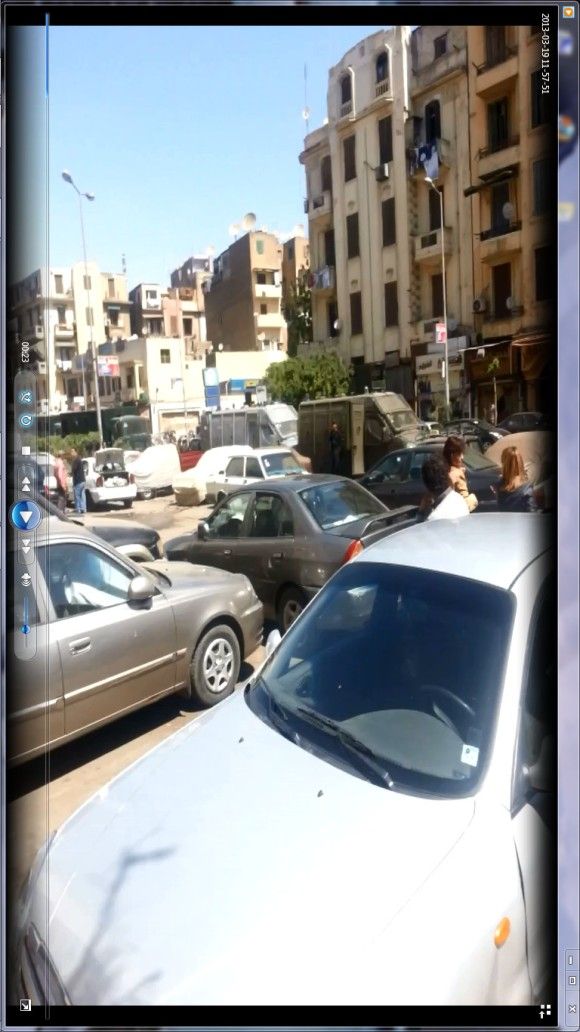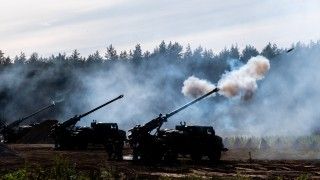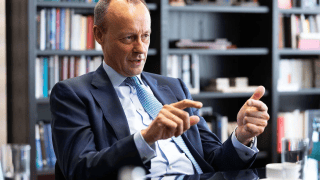- WIADOMOŚCI
He who lives by the (Islamic) crude oil shall die by the (Islamic) crude oil [COMMENTARY]
Russia is using the incident of shooting down the Su-24 bomber of its air force by the Turkish F-16 as an occasion to start a diplomatic offensive in the region - as Maciej Sankowski states.
Vladimir Putin is still being lucky. Antalya summit has been concluded just recently, and Putin, yet again, succeeds. The question here is not what is the prize for Russia in this game, but it rather concerns the cards that are going to be used.
- Vladimir Putin clearly defines his goals, declaring in-depth assistance in the process of fighting against and eliminating the Islamic State. In reward, he wants the West to provide him with the following:
- Return of Russia, as a major player, to the global table of those in power.
- Defining new division of zones of influence, with a particular emphasis placed on the Russian interest, which is expressed by the situation in Ukraine.
- Lifting the economic sanctions imposed on Moscow.
During the year 2015 Putin probed the Western partners, within the aforementioned areas. Moscow, as we can see, has drawn conclusions from the summit that took place in Brisbane, Australia, where Putin was isolated from the remaining participants. Meanwhile, in Antalya, Putin was the main actor.
Time of the Russian diplomatic offensive is not accidental. The European Union struggles to deal with the wave of immigrants, and the increased threat for the internal security, which, in turn, intensifies the disintegration processes. A spectacular leadership crisis in Germany is a good example of that. In other words, the EU is focused on itself, making efforts to get out of the current situation. On the other hand, 2016 is the election year in the USA, hence Washington is also going to present an egocentric stance. President Obama is going to be less and less significant, month after month.
Conclusion: Putin came to a conclusion that there will be no better time to redefine the Russian global position.
However, something went wrong, and even though the West is interested, as Moscow expected, in Russian involvement in the fight against the IS, when it comes to the sanctions, no change of the Western stance took place. This happened despite the Paris attacks, which – at the first glance – seemed to amplify the Russian arguments. To make things even more interesting, the French leadership is wearing the shoes that were, so far, used by the German politicians, and thus Hollande became the main guarantor of the Russian interest in Europe. Of course, the question still remains: to what extent France is determined, and whether this stance is not just a part of PR. It may be just an image-boost, as the current perspective seems to suggest.
Nonetheless, it also seems that the actions pursued by Russia are not going to be adjusted. They shall be intensified.
- Russia is going to intensify its military presence in Syria, and the incidents involving Turkey will be repeated, despite the declarations of will to reduce the tensions.
- The Russian disappointment with the Western stance concerning the sanctions is going to present itself with escalation of the Ukrainian crisis on one hand, and usage of the energy argument on the other. Gas and crude oil come back into play in winter, within the transit dimension. It is worth to add that this is particularly relevant in the light of the fact that Turkey receives gas via Ukraine.
- Putin is still going to use the “IS oil” card – he already has done it referring to Turkey. This card is particularly dangerous, since Moscow may accuse other EU states of trading crude oil from unknown sources. It is worth to note that the Turkish Ceyhan port is currently a trading centre, where illegal IS supplies are mixed with the Kurdish crude oil, purchased by some European enterprises. The resource is not different – neither its color, nor its smell is altered, in comparison with the substance which has been acquired “legally”. Accusations are, then, made easy.
The knowledge concerning the ISIS activities in Europe, possessed by the Russian special services, seems to be much more complementary, in comparison with the information possessed by the Western counterparts of the Russian intelligence, as the West still struggles within the information exchange between the allies. The relations will probably get cooled down, and the unofficial information channels between the Western and the Russian intelligence will become silent. Until another major terror act in Europe, which is just a matter of time.
Maciej Sankowski
















